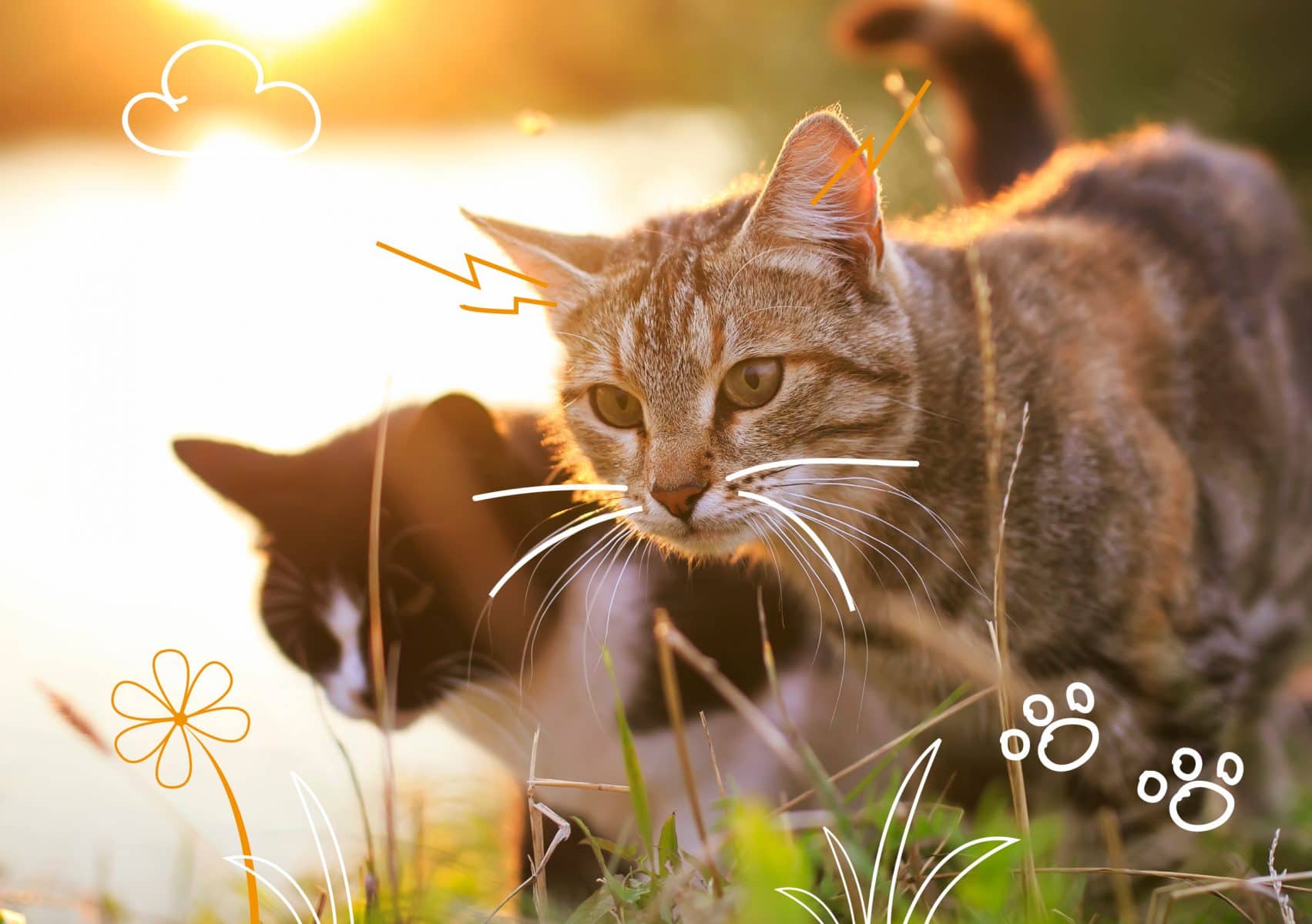Spotting the signs of kidney disease in cats
Luckily for us, most cats enjoy a long and happy life with a possible life expectancy of around 15 to 17 years. Unfortunately, as with humans, living into later life brings health issues and with our feline friends, a common condition is kidney disease in cats.
The kidneys play a vital role in;
- filtering impurities and waste proteins out of the blood
- balancing body water salts and acids
- producing high quality urine
Failure of the kidneys leads to build up of waste products and other compounds within the bloodstream which ultimately lead to a whole host of problems for your cat.
We take a look at some of the symptoms of kidney disease in cats and what can be done to help with this condition.
Two types of kidney disease
There are two types of kidney disease; one acute kidney disease (AKD) and the second which is chronic kidney disease (CKD) a longer, progressive disease which you can seek treatment for and slow down the condition for a number of years.
Acute kidney disease is usually as a result of a sudden and severe or abrupt injury to the kidneys. If this happens, your cat will become very ill indeed, may become nauseous, dehydrated and lose their appetite. It’s something that some cats may survive, but it’s not always the case that the vets can save them.

Chronic kidney disease (CKD) is what we normally think of when we talk about kidney disease in cats. It’s fairly common in older/senior cats and it’s something vets can help with. It’s not curable but usually it can be managed.
The earlier you can spot the signs of kidney disease in your cat, the better. It gives vets the chance to slow down this progressive disease and to support the quality and length of life of your cat.
Six key chronic kidney disease signs to look out for
- Your cat urinates in greater volumes or begins to have ‘accidents’ around the house
- They start to drink more water as their thirst increases
- Your cat appears ill and increasingly lethargic
- You notice a loss of appetite resulting in a loss of weight
- Their gums are not as pink as usual – signs of possible anaemia
- Increasing instances of vomiting
Seek veterinary advice
Don’t delay in taking your cat to the vet. They’ll perform a physical examination, take blood and blood pressure tests and possibly a urinary sample test to establish whether CKD is something your cat is suffering from.
Treatment focuses on minimising the build-up of toxic waste around the bloodstream, controlling blood pressure, maintaining adequate hydration in order to slow this progressive disease.
Ensure you keep up regular visits with your vets to monitor how your cat is getting along.
Dietary modification
A proven aspect of CKD treatment, diets that are restricted in protein, phosphorus and sodium content yet high in water-soluble vitamins, fibre and antioxidents may prolong life and improve the quality of life.
There are a wide range of special kidney recipe foods from pet food brands including Royal Canin and Eukanuba.
A slow, gradual transition to a new food may be necessary but worth persevering with to ensure your cat keeps eating but at the same time, moves over to more suitable recipes found in bespoke food. IMPORTANT – You should ONLY move your cat over to a specialist renal/kidney diet food following diagnosis and recommendation from your vet.
Keeping your cat well hydrated is important and encouraging drinking via water fountains, dripping taps or via numerous water sources dotted about the house all help your cat to find and enjoy water easily.
Living with CKD
As with many conditions, the earlier you spot changes in your cat and seek medical advice the better.
Cats with Chronic Kidney Disease can enjoy many additional, happy years after initial diagnosis with regular veterinary visits, medication and dietary care. If you think your cat is displaying some of these symptoms, don’t delay in getting your cat to the vets so that you can manage this condition.
Cover your feline friend with a cat insurance policy
Prepare for unexpected illnesses, such as kidney disease, by putting a cat insurance policy in place. Cat insurance can help you with the costs of veterinary fees in the event of an illness or accident.
Lifetime policies, such as our LifetimeFlex cover, will help you with the costs of your cat’s continued clinical care year-on-year, so long as the insurer invites renewal, there’s no break in cover and your premiums are kept up to date.
You might also be interested in…
Get a quote in minutes…

Existing customers
Call now on 0808 164 7999
to discuss your policy with us.
Monday - Friday: 08:00 - 20:00 Saturday: 09:00 - 14:00





 Back
Back
